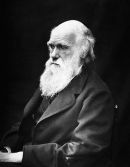Because I recently uncovered an old “boom box” from my garage, I suddenly have a way of playing cassette tapes (yes, those old things) in my bedroom while I’m doing my morning exercises. I’m feeling vindicated for saving them all when I moved 3 years ago!
I’ve been speaking about the gifted since 1982, and at some point most of my talks began to be recorded on cassettes. So I’ve been taking a stroll through my own history. The last two days I’ve been listening to a talk

I did for the Hollingworth Conference in 1999. The title was When Two Roads Diverge, How Will They Choose? The Hollingworth Conferences were created for the families of profoundly gifted children, and this talk was for the adults—parents and/or educators (most were parents). When I began the talk I told the audience that it was going to be my “sermon” for the conference, so if they wanted practical tips I’d be okay if they ditched my talk and went to hear somebody else.
Not being a preacher, what I meant by calling my talk a sermon was that it would be philosophical—a “why are these kids here and what is their evolutionary value to the human species?” sort of talk. Imagine my surprise, given that I’d just written a blog about competition, to discover that my twenty year old talk’s most central theme was the negative effect of our vison of “life, the universe and everything” as based on competition. If profoundly gifted children might actually come into the world with the capacity to think in new ways, I suggested back then that parents consider giving them a new way to see the world—new to our current culture, though very, very old in human history—as based on cooperation.
Consider the human body, I suggested. What if the cells were designed to compete with each other rather than cooperate? If we ate a piece of cake, with its heavy load of sugar (especially important for the brain) imagine what would happen if, once the cake was broken into its essential nutrients, the first organ to encounter them grabbed most of the sugars for itself, using what it needed and hoarding the extra in its own cells. The negative impact of such a design would not only harm the organs of the body that would be deprived of necessary nutrients, but also the organ storing more than it needed. Obviously, such a design would soon leave the Earth without our species. Our bodies are designed for cooperation. So is our planet.
 But Darwin!” someone might say. “Survival of the fittest! Nature red in tooth and claw.” Years ago I learned that before he died Darwin had backed away from that interpretation (though apparently those who had bought his original view dismissed his new awareness by suggesting he was getting senile). Even though we humans need to consume other living things (both animals and plants) to survive, we are powerfully prejudiced against death—at least our own. So Darwin’s original version of the predator-prey relationship perceived it as competition. One lives and the other dies. One wins, one loses.
But Darwin!” someone might say. “Survival of the fittest! Nature red in tooth and claw.” Years ago I learned that before he died Darwin had backed away from that interpretation (though apparently those who had bought his original view dismissed his new awareness by suggesting he was getting senile). Even though we humans need to consume other living things (both animals and plants) to survive, we are powerfully prejudiced against death—at least our own. So Darwin’s original version of the predator-prey relationship perceived it as competition. One lives and the other dies. One wins, one loses.
But the natural world is balanced by the fact that prey animals reproduce in far greater numbers than predators, so that there are enough individuals to preserve both species. Plants are involved in this balance as well, but humans tend to identify with animals far more than with plants, so for thousands of years have mostly missed the plant/animal balance—while disturbing it massively in favor of the plants that we (or our prey) like to eat. And, as with the buffalo, and many kinds of fish and birds, we have often killed vastly more prey animals than we needed for our own survival.  We have tended to think of ourselves as the only living beings with absolute value. Thinking in terms of competition we accepted our right to “win out” over every other life form that might in some way harm us. (Though we are willing to share our well-being and status with the creatures we like best.)
We have tended to think of ourselves as the only living beings with absolute value. Thinking in terms of competition we accepted our right to “win out” over every other life form that might in some way harm us. (Though we are willing to share our well-being and status with the creatures we like best.)
Even among other humans, however, we have mostly chosen competition rather than cooperation in exactly the way our own bodies do not. Just as with animals, we tend to value some humans more than others, and so often are willing to sacrifice the well-being of some in favor of the ones we value more. We as a whole “thinking species” haven’t managed yet to consider and treat all of humanity as our “friends and relations.”
As I write this members of our species’ younger generation around the world (those who are hoping to still have a habitable Earth to grow up and raise children on) are demanding that we recognize and address the ultimate damage to ourselves and our planet that our competitive (humans-at-the-top-of-the-evolutionary-pyramid) view of life has created. They see and say what so many of their elders don’t yet, that we need to make a major change because “our house is burning.”
Meanwhile some rich people in the USA are having to serve at least a little jail time for having used their personally amassed wealth to cheat their kids into “top schools” in the race to get to the top of our society’s pyramid, whether their kids have the ability to get there themselves or not. But consider this: whether kids get into “top colleges” by cheating or by profound intelligence, what they will find there is the “upper” end of an entire culture based on and still mostly teaching, competition. My last blog was about my personal discovery that I, who have known about Darwin’s revision, and who have been “preaching” about the need to change our world view from competition to cooperation for more than twenty years, have been unconsciously just as motivated by competition in my personal life as I was taught to be! That’s more than a little scary!
The roads are diverging in front of us, and we as a species are running out of time to make a choice of which road to take—the one that has led us to where we are, or the one that will begin a massive change.
At the time I gave that 1999 talk many people were already aware that the planet was in danger (the first Earth Day was in 1970!) and efforts to change direction were being implemented, surely, if slowly. Weirdly enough now, 20 years later, as storms and wildfires and rising sea levels and droughts (and floods) and volcanoes and the extinction of great numbers of species become impossible to ignore, our own country is being taken literally backward by a leadership focused entirely on competition. Most of the world is still governed by systems based on modern humanity’s failure to see, understand, and value cooperation.
If we look closely at the issues that make the headlines and grab the most air time in our news broadcasts (immigration, me too, black lives matter, voting rights, political battles, health care, rising poverty rates…) it doesn’t take much to see the operation of the “winner take all” mentality that a culture based on competition creates.
Of course it will take a change in behavior to move to a new road and many people are afraid we have run out of time or can’t muster the courage and commitment or even know-how, to “take the road less  traveled.” But the change in consciousness required is not only possible, it is happening.
traveled.” But the change in consciousness required is not only possible, it is happening.
Consciousness is energy, and each of us, as we change our own consciousness, has an energetic effect on the whole. And we are doing it! Once we begin to focus our attention on the real changes that real humans are making in the old pattern, we can see the “good news” about how many of us are already at work in this direction. Rather than being seduced into believing that all the news is bad, we begin to see that each one of us has real power. I’m not among those who think that more technology will solve the problem or that “artificial intelligence” will save our planet or our species. Nature’s intelligence is now and always has been superior to that of even the most profoundly gifted human individuals. So if we as a species can get over our need to feel superior in order to compete successfully, we may yet learn to cooperate our way into long term survival.

Leave a comment